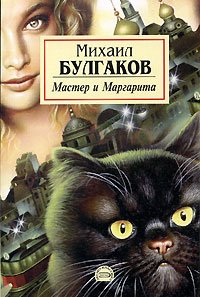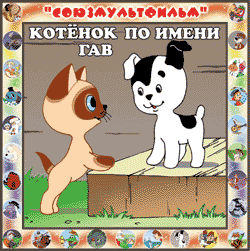Michele A. Berdy
from
http://www.themoscowtimes.com/stories/2006/08/04/007.html
Friday, August 4, 2006. Issue 3468
Who You Gonna Call?
By Michele A. Berdy
Пользователь: user; physician (archaic)
Let's say -- hypothetically, of course -- that you have succumbed to a summer cold, which -- again hypothetically -- has gotten worse and worse, despite using every folk remedy your Russian friends have been suggesting to you by e-mail, phone, and text message. You give up. Time to call a doctor. So whom do you call? And what do you call the doc?
Well, if you were in Russia a century or so ago, you might have called the doctor пользователь. Today, this is the word for a user of something, like пользователь Интернета (an Internet user), but once upon a time it was the word for a healer, someone who provided польза (which once meant "relief" or "succor," but now means "benefit"). In old texts you can find delightful phrases such as Кто вас пользует? (Who is treating you?), which today sounds like a weird version of "Who is using you?"
In the olden days, you might also have called upon the services of лекарь (physician, healer), a word that you see now as the name of a drug store chain, Старый Лекаръ (the Old Physician) -- a Russian version of Ye Olde Apothecary Shoppe, complete with some bogus old orthography.
Today, for qualified medical care you'll want врач (doctor). You may be disconcerted to discover that the word is derived from archaic meanings of врать (which now means "to lie") and ворчать ("to growl"). Actually, it's even worse: The original meaning of both words was connected with the casting of spells and wizardry. So when you go to a doctor, you are knowingly putting your life in the hands of a snarling, lying charlatan.
Etymologically speaking, that is.
Contemporary doc-talk in Russian also poses some problems for us English-speakers. You can call a modern physician доктор, although Russians use the word a bit differently than we use its counterpart. You might ask: Скажите, доктор, сколько дней надо принимать лекарство? (Doctor, how many days should I take the medicine?). But Russians don't use it as an honorific title: you can't say Доктор Петров the way we say Dr. Smith.
If your doctor is a woman, you can still call her врач and address her as доктор. This seems simple until you come across врачиха and докторша. Врачиха is "woman doctor" and, depending on the context, speaker, and tone of voice, can have connotations from the most negative to the most positive. Most of the time you hear a sneer in it, but not among the down-home folks: Надо будет врачихе цветочков подарить. Классная женщина. (I've got to get that lady doctor some flowers. She's really classy.)
The meaning and connotation of докторша is even trickier. In the old days, the suffix -ша at the end of a noun for a professional denoted "wife of." So докторша meant the doctor's wife. A famous Chekhov short story begins with the death of doctor's young son and the phrase: докторша опустилась на колени перед кроваткой (the doctor's wife got down on her knees in front of the crib). By the early Soviet period докторша meant "woman doctor," but today it is usually folksy or condescending.
I personally avoid both words like the plague: Insulting your physician will not get you good medical care.
If -- Боже упаси! (God forbid!) -- you end up in the hospital, you need to know what to call the staff. A nurse is медицинская сестра или медицинский брат (literally "medical sister or brother") -- and more commonly медсестра and медбрат. My nurse friend tells me that patients address her as сестра or sometimes the affectionate сестричка: Сестра, вы не подскажете, когда доктор придёт? (Nurse, can you tell me when the doctor is coming?) But for some reason a nurse named Boris is never addressed as брат; patients either address him by name and patronymic or name alone.
If all of this is making your head spin, the moral is: Don't get sick in the first place.
Michele A. Berdy is a Moscow-based translator and interpreter.
Rudyard Kipling in Russian
ЕСТЬ У МЕНЯ ШЕСТЕРКА СЛУГ
Есть у меня шестерка слуг,
Проворных удалых.
И все, что вижу я вокруг,
Все знаю я от них.
Они по знаку моему
Являются в нужде.
Зовут их: Как и Почему,
Кто, Что, Когда и Где.
Я по морям и по лесам
Гоняю верных слуг,
Потом работаю я сам,
А им даю досуг.
Даю им отдых от забот
Пускай не устают,
Они прожорливый народ,
Пускай едят и пьют.
Но у меня есть милый друг,
Особа юных лет,
Ей служат сотни тысяч слуг,
И всем покоя нет!
Она гоняет как собак
В ненастье, дождь и тьму
Пять тысяч Где, семь тысяч Как,
Сто тысяч Почему!
Перевод С. Маршака
---
SIX SERVING MEN
I keep six honest serving-men
(They taught me all I knew);
Their names are: What and Why and When
And How and Where and Who.
I send them over land and sea,
I send them east and west;
But after they have worked for me,
I give them all a rest.
I let them rest from nine till five,
For I am busy then,
As well as breakfast, lunch, and tea,
For they are hungry men.
But different folk hold different views;
I know a person small
She keeps ten million serving man,
Who get no rest at all!
She sends 'em abroad on her own affairs,
From the second she opens her eyes
One million Hows, two million Wheres
And seven million Whys.
Rudyard Kipling
====
Заповедь
Владей собой среди толпы смятенной,
Тебя клянущей за смятенье всех.
Верь сам в себя, наперекор вселенной,
И маловерным отпусти их грех.
Пусть час не пробил, жди, не уставая,
Пусть лгут лжецы, не снисходи до них;
Умей прощать, и не кажись, прощая,
Великодушней и мудрей других.
Умей мечтать, не став рабом мечтанья,
И мыслить, мысли не обожествив;
Равно встречай успех и поруганье,
Не забывая, что их голос лжив.
Останься тих, когда твое же слово
Калечит плут, чтоб уловлять глупцов,
Когда вся жизнь разрушена, и снова
Ты должен все воссоздавать с основ.
Умей поставить в радостной надежде
На карту все, что накопил с трудом,
Все проиграть, и нищим стать, как прежде,
И никогда не пожалеть о том;
Умей принудить сердце, нервы, тело
Тебе служить, когда в твоей груди
Уже давно все пусто, все сгорело
И только воля говорит: "'Иди!"
Останься прост, беседуя с царями,
Останься честен, говоря с толпой;
Будь прям и тверд с врагами и с друзьями,
Пусть все, в свой час, считаются с тобой.
Наполни смыслом каждое мгновенье,
Часов и дней неумолимый бег,-
Тогда весь мир ты примешь, как владенье,
Тогда, мой сын, ты будешь Человек.
Перевод с английского Михаила Лозинского
---
If you can keep your head when all about you
Are losing theirs and blaming it on you,
If you can trust yourself when all men doubt you
But make allowance for their doubting too,
If you can wait and not be tired by waiting,
Or being lied about, don't deal in lies,
Or being hated, don't give way to hating,
And yet don't look too good, nor talk too wise:
If you can dream--and not make dreams your master,
If you can think--and not make thoughts your aim;
If you can meet with Triumph and Disaster
And treat those two impostors just the same;
If you can bear to hear the truth you've spoken
Twisted by knaves to make a trap for fools,
Or watch the things you gave your life to, broken,
And stoop and build 'em up with worn-out tools:
If you can make one heap of all your winnings
And risk it all on one turn of pitch-and-toss,
And lose, and start again at your beginnings
And never breath a word about your loss;
If you can force your heart and nerve and sinew
To serve your turn long after they are gone,
And so hold on when there is nothing in you
Except the Will which says to them: "Hold on!"
If you can talk with crowds and keep your virtue,
Or walk with kings--nor lose the common touch,
If neither foes nor loving friends can hurt you;
If all men count with you, but none too much,
If you can fill the unforgiving minute
With sixty seconds' worth of distance run,
Yours is the Earth and everything that's in it,
And--which is more--you'll be a Man, my son!
By Rudyard Kipling (1865-1936)




